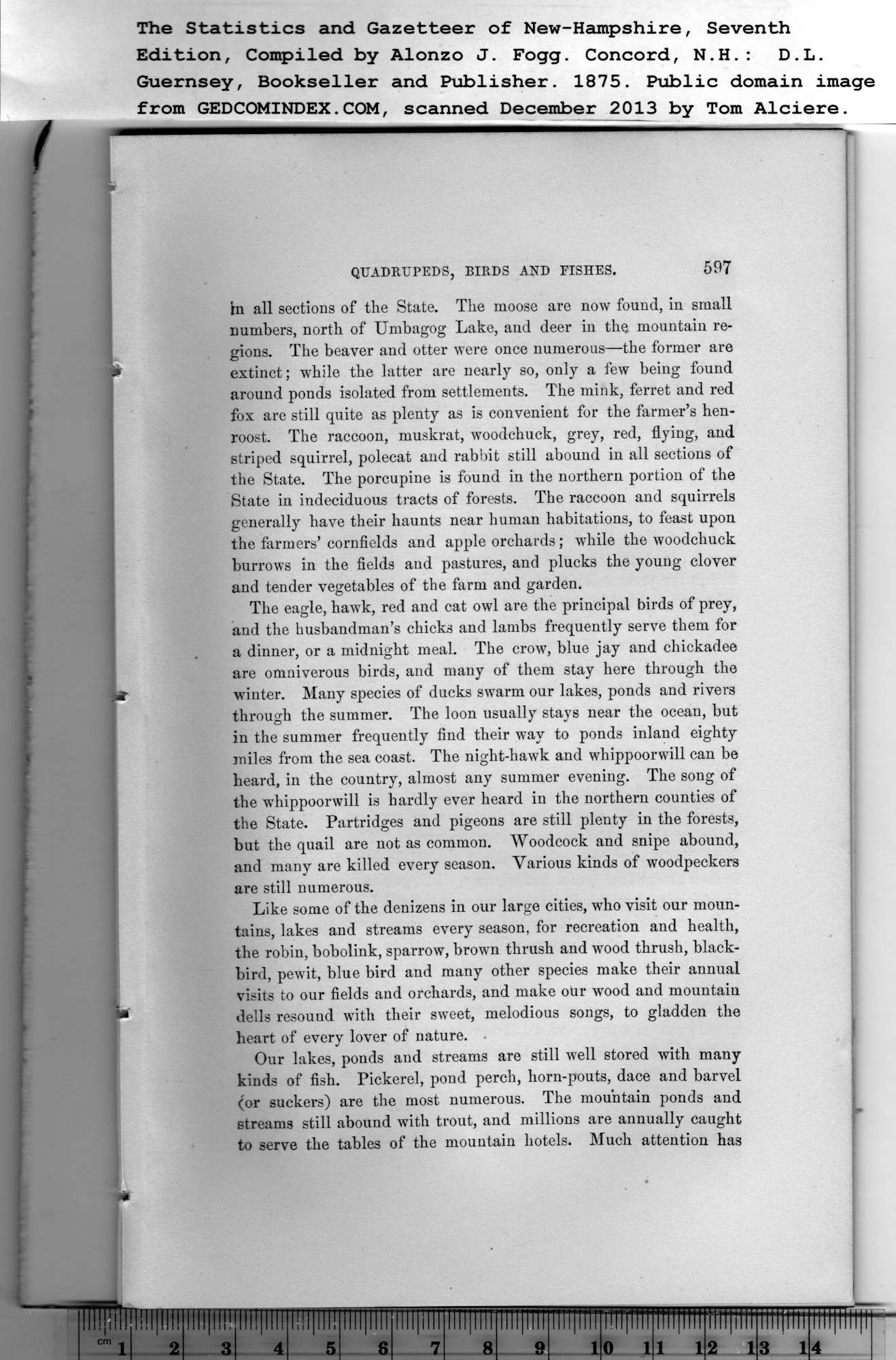|
QUADRUPEDS, BIRDS AND FISHES. 597
in all sections of the State. The moose are now found, in small
numbers, north of Umbagog Lake, and deer in the mountain re-
gions. The beaver and otter were once numerous—the former are
extinct; while the latter are nearly so, only a few being found
around ponds isolated from settlements. The mink, ferret and red
fox are still quite as plenty as is convenient for the farmer’s hen-
roost. The raccoon, muskrat, woodchuck, grey, red, flying, and
striped squirrel, polecat and rabbit still abound in all sections of
the State. The porcupine is found in the northern portion of the
State in indeciduous tracts of forests. The raccoon and squirrels
1 generally have their haunts near human habitations, to feast upon
the farmers’ cornfields and apple orchards; while the woodchuck
burrows in the fields and pastures, and plucks the young clover
and tender vegetables of the farm and garden.
The eagle, hawk, red and cat owl are the principal birds of prey,
and the husbandman’s chicks and lambs frequently serve them for
a dinner, or a midnight meal. The crow, blue jay and chickadee
are omniverous birds, and many of them stay here through the
winter. Many species of ducks swarm our lakes, ponds and rivers
through the summer. The loon usually stays near the ocean, but
in the summer frequently find their way to ponds inland eighty
miles from the sea coast. The night-hawk and whippoorwill can be
heard, in the country, almost any summer evening. The song of
the whippoorwill is hardly ever heard in the northern counties of
the State. Partridges and pigeons are still plenty in the forests,
but the quail are not as common. Woodcock and snipe abound,
and many are killed every season. Various kinds of woodpeckers
are still numerous.
Like some of the denizens in our large cities, who visit our moun-
tains, lakes and streams every season, for recreation and health,
the robin, bobolink, sparrow, brown thrush and wood thrush, black-
bird, pewit, blue bird and many other species make their annual
visits to our fields and orchards, and make our wood and mountain
dells resound with their sweet, melodious songs, to gladden the
heart of every lover of nature.
Our lakes, ponds and streams are still well stored with many
kinds of fish. Pickerel, pond perch, horn-pouts, dace and barvel
(or suckers) are the most numerous. The mountain ponds and
streams still abound with trout, and millions are annually caught
to serve the tables of the mountain hotels. Much attention has
PREVIOUS PAGE ... NEXT PAGE
This page was written in HTML using a program written in Python 3.2
|
